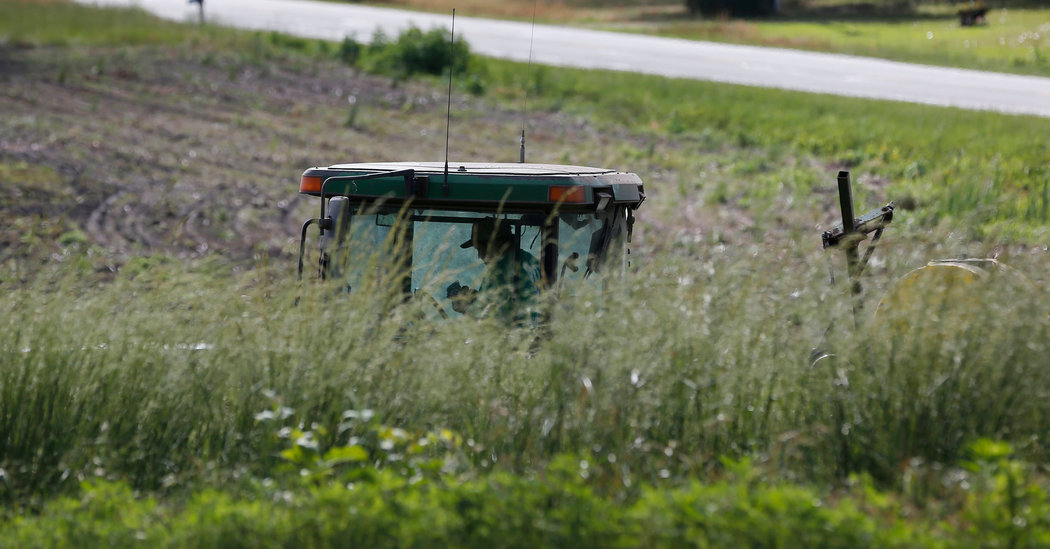He reached out to Canadian and Mexican officials, offering a deal in which the United States would lift its tariffs if the countries would agree to prevent future surges of metal into the United States market, these people said. If those surges happened, the United States could reimpose tariffs of 10 percent on aluminum and 25 percent on steel on the specific products affected. And Canada and Mexico would agree that, if they retaliated, it would only be on American metal, and not on American farmers.
On Monday, Canada and Mexico officially lifted the tariffs they had imposed on American pork, milk, cheese, wine and other products, a major relief to American farmers who count the countries as two of their top three export markets, in addition to China.
The collateral damage to farmers from the trade clash with China now looms as a potential obstacle to the president’s re-election. China’s tariffs against products like soybeans and beef, and a recent move to cancel a major pork order, have hit swing states, including Iowa, Ohio and Wisconsin, especially hard.
A survey of 400 American farmers by Purdue University and the CME Group, a global markets company, showed that sentiment plunged in April, stemming from concerns about worsening tensions with China. Only 28 percent of farmers surveyed said they believed a soybean dispute with China would be resolved by July 1, down from 45 percent in March, while 74 percent of those surveyed said now was a “bad time” to make big farm investments.
“Farmers are becoming increasingly anxious over their future financial performance,” said James Mintert, the survey’s principal investigator and director of Purdue University’s Center for Commercial Agriculture.
The administration handed out $12 billion in emergency relief for farmers last year, funded through the Commodity Credit Corporation, a program that helps shore up American farmers by buying their crops. The new round of aid could operate similarly, though details have not been released. But many farmers have complained that the past payments are too small to offset the cost of lost markets overseas, while others have objected to the idea of receiving government handouts.
The president is also increasingly focused on rural communities as he looks ahead to a fight with the Democratic nominee for the 2020 election.

